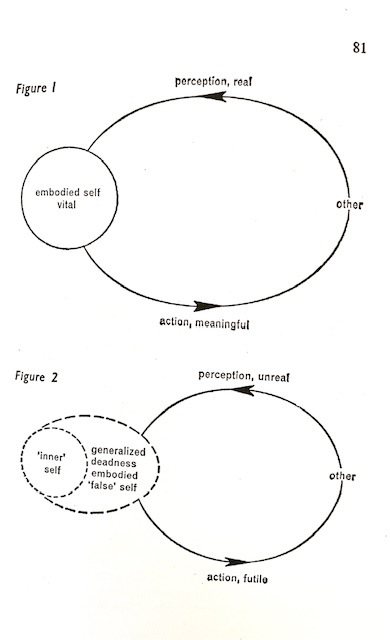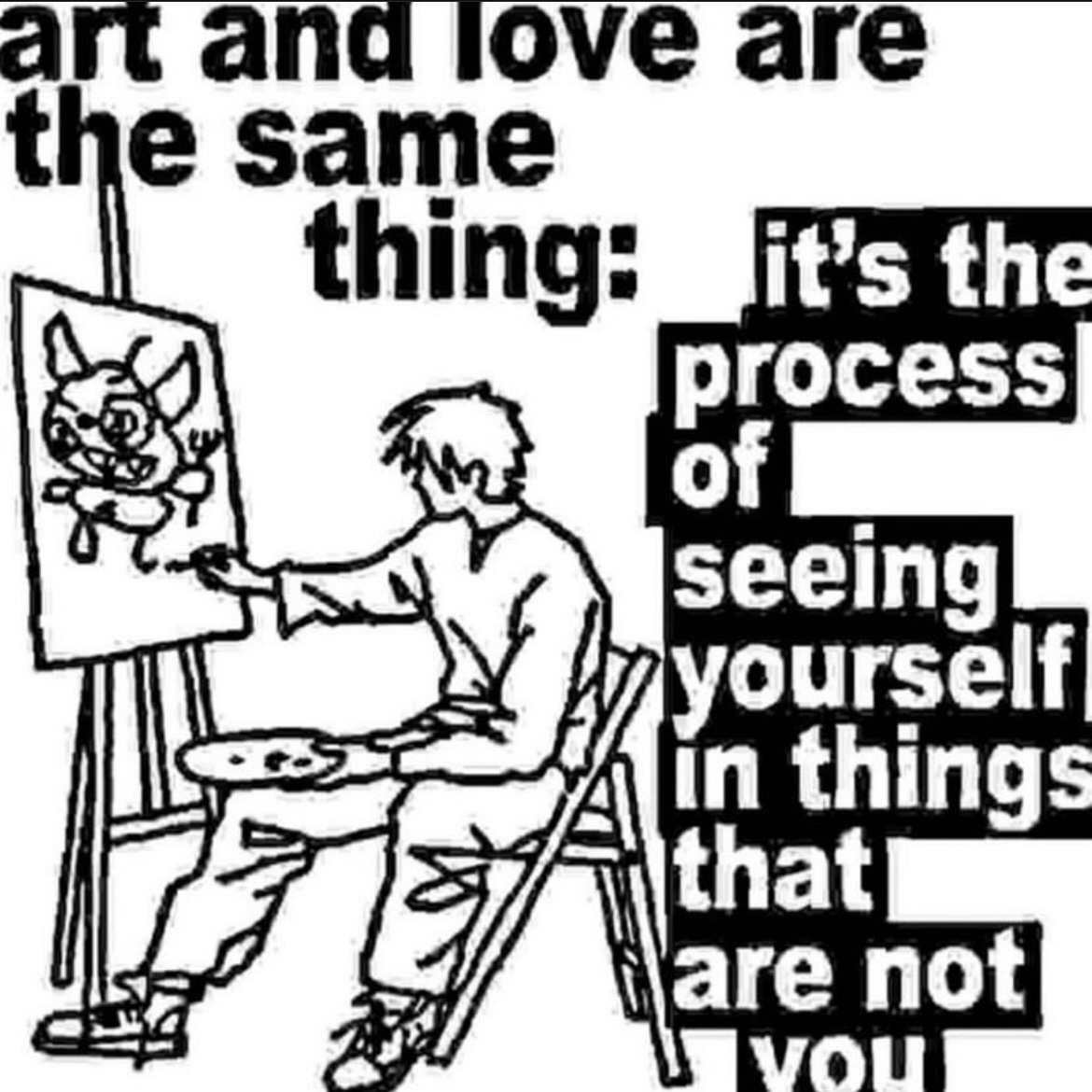life is a garden ➿ and the roots are all touching
i carry it with me ☆
originally created september 30th, 2024
for “i carry it with me”, on view at kaiao space jan 2025
[i carry your heart with me (i carry it in]
BY E. E. CUMMINGS
I carry your heart with me (i carry it in
my heart) i am never without it (anywhere
i go you go,my dear;and whatever is done
by only me is your doing,my darling)
i fear
no fate (for you are my fate,my sweet) i want
no world (for beautiful you are my world,my true)
and it’s you are whatever a moon has always meant
and whatever a sun will always sing is you
here is the deepest secret nobody knows
(here is the root of the root and the bud of the bud
and the sky of the sky of a tree called life; which grows
higher than soul can hope or mind can hide)
and this is the wonder that's keeping the stars apart
i carry your heart (i carry it in my heart)
fiddlehead - grief motif
view “i carry it with me” zine here
✰ show themes ✰
self actualization via wikipedia:
love via wikipedia:
✉︎ things i (ayaka) have been reflecting on ✉︎
the self then seeks, by being unembodied, to transcend the world and hence be safe. ..
this detachment of the self means that the self is never revealed directly in the individuals expressions and actions, nor does it experience anything spontaneously or immediately…..
If the individual delegates all transactions between himself and the other to a system within his being which is not ‘him’, then the world is experienced as unreal, and all that belongs to this system is felt to be false, futile, and meaningless.” pg 79, 80, 81


on style and taste:
susan sontag, against interpretation:
originally created september 30th, 2024
for “i carry it with me”, on view at kaiao space jan 2025
[i carry your heart with me (i carry it in]
BY E. E. CUMMINGS
I carry your heart with me (i carry it in
my heart) i am never without it (anywhere
i go you go,my dear;and whatever is done
by only me is your doing,my darling)
i fear
no fate (for you are my fate,my sweet) i want
no world (for beautiful you are my world,my true)
and it’s you are whatever a moon has always meant
and whatever a sun will always sing is you
here is the deepest secret nobody knows
(here is the root of the root and the bud of the bud
and the sky of the sky of a tree called life; which grows
higher than soul can hope or mind can hide)
and this is the wonder that's keeping the stars apart
i carry your heart (i carry it in my heart)
fiddlehead - grief motif
view “i carry it with me” zine here
✰ show themes ✰
- courage
- grief
- slowness
- inevitability of change
- reciprocity / systems of care
- self-actualization / self-transcendence
- home in the body, home in the world, home in the genealogy of humanity (ecology!)
self actualization via wikipedia:
-
Self-actualization, in Maslow's hierarchy of needs, is the highest personal aspirational human need in the hierarchy. It represents where one's potential is fully realized after more basic needs, such as for the body and the ego, have been fulfilled. Long received in psychological teaching as the peak of human needs, Maslow later added the category self-transcendence (which, strictly speaking, extends beyond one's own "needs").
- Self-actualization was coined by the organismic theorist Kurt Goldstein for the motive to realize one's full potential: "the tendency to actualize itself as fully as possible is the basic drive ... the drive of self-actualization."[1] Carl Rogers similarly wrote of "the curative force in psychotherapy – man's tendency to actualize himself, to become his potentialities ... to express and activate all the capacities of the organism."[2]
love via wikipedia:
-
Ancient Greek philosophers identified six forms of love: familial love (storge), friendly love or platonic love (philia), romantic love (eros), self-love (philautia), guest love (xenia), and divine or unconditional love (agape).
✉︎ things i (ayaka) have been reflecting on ✉︎
- growth as non-linear (life is not a race to be completed, but a journey to discover!)
- love as non-linear (acknowledging the thin and osmotic lines between familial, platonic, and romantic)
- relationships as collaborative, as an on-going creative exercise, as ecology (refer to grothendiek’s views on ecology here)
- hinokishin in tenrikyo: Hinokishin is any action arising from the deep realization that life is bestowed on the human body through the complete providence of God. Such action, ultimately enacted with gratitude and without greed, is pragmatically selfless for it arises out of the awareness that the human body is "a thing lent, a thing borrowed," and is to be used for blissful living. In other words, it is the physical and spiritual response to and an expression of wholeheartedly relying on the blessings of God that are bestowed upon the body and the world by way of the complete providence.
- the inherent narcissism of the 21st century, and the individual’s isolation from unifying themes/feelings of humanity (how did we all get so far away from each other?)
- via agony of eros by byung chul han, pg 18: “Today, we live in an increasingly narcissistic society. Libido is primarily invested in one’s own subjectivity. Narcissism is not the same as self-love. The subject of self- love draws a negative boundary between him- or herself and the Other. The narcissistic subject, on the other hand, never manages to set any clear boundaries. In consequence, the border between the narcissist and the Other becomes blurry. The world appears only as adumbrations of the narcissist’s self, which is incapable of recognizing the Other in his or her otherness—much less acknowledging this otherness for what it is. Meaning can exist for the narcissistic self only when it somehow catches sight of itself. It wallows in its own shadow everywhere until it drowns— in itself.”
- pg 19: “Depression is a narcissistic malady. It derives from overwrought, pathologically distorted self-reference. The narcissistic-depressive subject has exhausted itself and worn itself down. Without a world to inhabit, it has been abandoned by the Other. Eros and depression are opposites. Eros pulls the subject out of itself, toward the Other. Depression, in contrast, plunges the subject into itself.”
- school of rock (2003 film) as the heroes journey as jack black’s character self actualizes through self transcendence (teaching the love of rocking?!?!)
- RD Laing’s “the divided self”
- from chapter 5, “the inner self in the schizoid condition”: “the paranoic has specific persecutors. someone is against him. there is a plot on foot to steal his brains. a machine is concealed in the wall of his bedroom which emits mind rays to soften his brain or to send electric shocks through him while his is asleep. the person i am describing feels at this phase persecuted by reality itself. the world as it is, and other people as they are, are the dangers.
the self then seeks, by being unembodied, to transcend the world and hence be safe. ..
this detachment of the self means that the self is never revealed directly in the individuals expressions and actions, nor does it experience anything spontaneously or immediately…..
If the individual delegates all transactions between himself and the other to a system within his being which is not ‘him’, then the world is experienced as unreal, and all that belongs to this system is felt to be false, futile, and meaningless.” pg 79, 80, 81
- we want figure 1!!!! but contemporary society encourages figure 2 to support the scaffolding of american empire / western capitalism
- trappist monk vows:
- obedience.
- stability. We commit ourselves for life to one community, resisting the temptation to escape our truth through restless movement.
- Conversion of Life. We promise to live the monastic way of life as a means of learning the truth about ourselves in ways that enable change.
- Poverty. We possess nothing of our own and hold everything in common with our brothers and sisters as a way to free ourselves from the self-centeredness that separates us from God and others.
- Celibate Chastity. To liberate the love of our hearts for service to Jesus, we embrace celibacy and renounce married love. This radical discipline, sustained only by prayer, does not separate us from the riches of human love but is a means by which that love is taken up and fulfilled as a gift to the church and world.
- obviously a big theme here is the evaluation of asceticism (severe self-discipline and avoidance of all forms of over-indulgence, typically for religious reasons) within the context of our world of instant gratification
- in a way, folks i consider “real artists” often unknowingly take a vow of poverty and conversion of life
on style and taste:
- “style is not simply an ornament of speech, it is the auto expression of meaning. style in life is crucial.” john o’malley, american academic and jesuit priest
- pierre bordieu, “distinction: a social critique of the judgement of taste”, taste is a social process that entails mostly listening and experiencing
susan sontag, against interpretation:
- “Once upon a time (a time when high art was scarce), it must have been a revolutionary and creative move to interpret works of art. Now it is not. What we decidedly do not need now is further to assimilate Art into Thought, or (worse yet) Art into Culture. Interpretation takes the sensory experience of the work of art for granted, and proceeds from there. This cannot be taken for granted, now. Think of the sheer multiplication of works of art available to every one of us, superadded to the conflicting tastes and odors and sights of the urban environment that bombard our senses. Ours is a culture based on excess, on overproduction; the result is a steady loss of sharpness in our sensory experience. All the conditions of modern life—its material plenitude, its sheer crowdedness—conjoin to dull our sensory faculties. And it is in the light of the condition of our senses, our capacities (rather than those of another age), that the task of the critic must be assessed.” page 9
- “In place of a hermeneutics we need an erotics of art.” page 10
- hermeneutics: the branch of knowledge that deals with interpretation, especially of the Bible or literary texts.
last edited 6/22/25